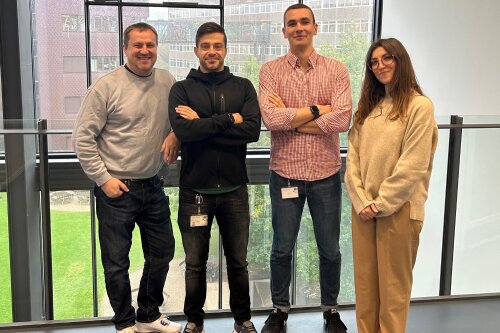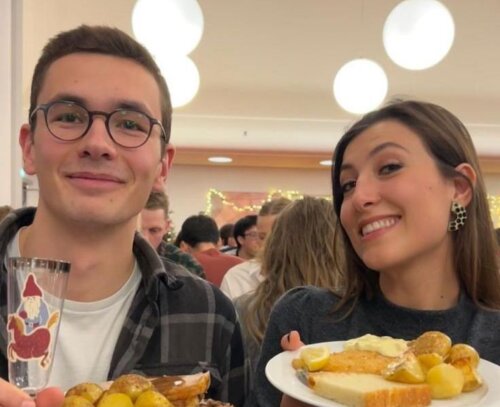In October 2023, I went to Copenhagen, Denmark, for a 3-month secondment at the University of Copenhagen (UCPH) in the Herth lab. This group focuses on the development of radiopharmaceuticals in the context of cancer and brain disorders. During my stay, I had the opportunity to work closely with Simona Mattiussi, doctoral candidate 3 within the OncoProTools consortium, under the supervision of Matthias Herth and Umberto Maria Battisti. Our common aim was to synthesize a novel FAP-specific Target Module allowing for simultaneous diagnostic imaging, endoradiotherapy, and Universal Chimeric Antigen Receptor (UniCAR) T-cell immunotherapy.

As a biotechnologist working in the field of immuno-oncology, my work primarily focuses on harnessing living systems, particularly mammalian cells, for the production of recombinant proteins. This involves a broad range of techniques, including gene cloning, the development of expression systems, cell culture, protein purification, and in-depth protein characterization. During my secondment at UCPH, I had the opportunity to broaden my expertise in a laboratory specialized in organic chemistry and radiochemistry. This environment introduced me to the synthesis of small molecules, reaction mechanism analysis, radiolabeling with isotopes, and precise structural modifications of biomolecules. These new perspectives deepened my understanding of organic synthesis, chemical modifications of proteins, protein-drug conjugation strategies, and radiolabeling approaches. These skills are instrumental in the development of next-generation bioconjugates and radiolabeled small molecules and proteins for both diagnostics and therapeutics.
This experience also exposed me to several advanced analytical and detection techniques, such as mass spectrometry, NMR, HPLC, PET imaging and gamma counters. These methods significantly enhance the quality control and detailed characterization of the products newly synthesized. Importantly, I gained hands-on experience in organic synthesis and radiolabeling proteins with radioactive isotopes, which are essential steps in the development of theranostic agents.
This secondment also fostered adaptability and improved my ability to communicate and collaborate across disciplines. This experience at UCPH has confirmed the critical role of interdisciplinary collaboration between biology, immuno-oncology, and chemistry in advancing complex translational projects.

Beyond the scientific aspects, this experience allowed me to build meaningful connections with the team I joined. I am truly grateful for how warmly the team welcomed me and made me feel part of their group. This secondment also offered the opportunity to explore the city of Copenhagen, immerse myself in Scandinavian culture.
In summary, this scientific and social experience has provided me with greater technical versatility, inspired new project ideas for integrating chemistry with protein science in the context of theranostic approaches and fostered a strong connection with the Herth lab.